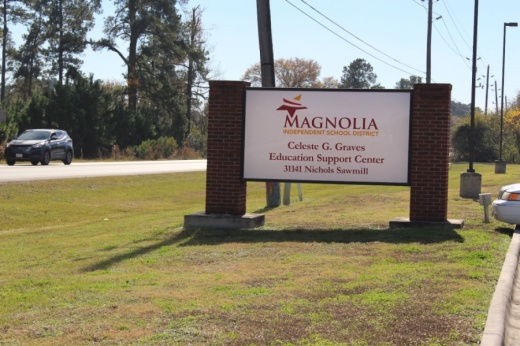Under House Bill 3 approved by the Legislature in 2019, Morris said the only way districts can see increased revenue is from enrollment growth, as HB 3 dictates decreasing the tax rate as property values rise. Morris said he projects the district will see its taxable value grow 10% from fiscal year 2020-21 to 2021-22.
“As property values go up, the tax rate goes down [and] the state makes up the difference,” he said May 10. “The overall revenue is exactly the same unless you’re increasing in enrollment.”
While the district does not begin its fiscal year until September 1, Morris said he anticipates a balanced budget for the upcoming year with a $3 million surplus resulting from the ongoing fiscal year.
“What we anticipate is asking the board to take some of those dollars ... and commit that for expenses over the next couple years to help fund the needs for the district," Morris said.
The $3 million surplus comes from $4 million in additional revenue from COVID-19 disbursements with $1 million of that going toward a bonus for staff this spring, Morris said.
Morris said the district's anticipated surplus is also made possible by the state's extension of the hold-harmless guarantee.
In a typical school year, the state allocates school funding based on student enrollment and daily on-campus attendance. However, as a result of COVID-19 and the advent of remote learning, Texas leaders implemented a hold-harmless guarantee at the onset of the pandemic to ensure school districts would receive funding for spring 2020 based on attendance projections made prior to the public health crisis, Community Impact Newspaper previously reported.
“The thing that’s saving us this year is obviously our enrollment is down related to the pandemic, so the hold harmless that we’re paid from the Texas Education Agency is really the thing that’s keeping us whole, because were we funded on our [actual attendance], it would be quite a bit lower than what we budgeted as well," Morris said.
Looking ahead, Morris said he anticipates MISD will receive $20 million from the latest federal aid package released during the coronavirus pandemic, with funds spanning to September 2024. He said funds must be used for expenses related to student learning loss, the safe reopening of campuses, teacher support and retaining employees, among other items. However, Morris said it is important for the district to budget appropriately to avoid a "funding cliff" when the aid runs out.
“Anytime we receive a large influx of money on a one-time basis, folks are eager to spend those dollars. And we are as well, but unfortunately it just requires us to plan to make sure that we’re not building into our budget recurring expenses that we won’t be able to fund when the money dries up," he said.
As such, Morris said the district is budgeting three years out to ensure pay increases are supported by the coming enrollment growth, for example.
Morris said initial budget discussions propose a 2% pay increase for all staff in fiscal years 2021-22 and 2022-23 as well as $500 bonuses for all employees both years.





